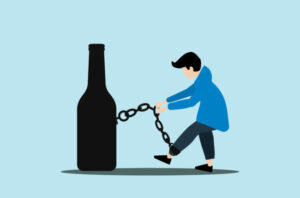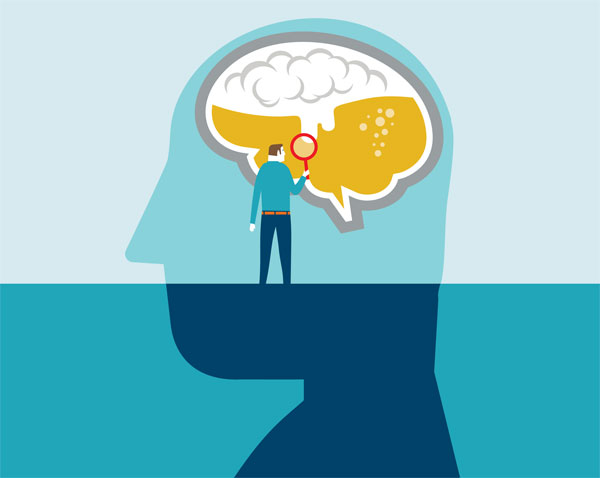Addiction is a disease that affects millions of people all over the world. If you are one of those people, don’t worry, there is help out there. Addiction moderation therapy can help you overcome your addiction and start living a healthy life again. In this blog post, we will discuss what therapy for addiction moderation is and how to get started!
Contents
What is Addiction Moderation Therapy?
Addiction Moderation Therapy (AMT) is a type of therapy that can help people with addictions to reduce the harm their addiction is causing. It focuses on reducing addictive behavior and improving the overall quality of life. This type of therapy is not intended to be a “cure” for addiction, but rather an aid in managing it more effectively.
When considering AMT, it is important to understand that no two patients are alike. Each person will have different needs and goals when it comes to managing their addiction. Therefore, treatment plans should be tailored toward each individual’s specific circumstances and goals.
How Does Moderation Therapy For Addiction Work?

Here are some of the components of addiction moderation therapy:
- Self-Awareness: Therapy sessions begin with the goal of increasing self-awareness. This helps to identify patterns of behavior and other triggers that can lead to addictive behaviors.
- Education: Therapists will help their patients understand more about addiction, the way it works, and the effects it can have on a person’s life.
- Goal Setting: Once a patient has a better understanding of their addiction, they will work together with their therapist to set realistic goals for managing their addiction in healthier ways.
- Support System Building: A strong support system is essential for long-term success in managing addiction. In therapy sessions, patients will work on building relationships with family, friends, and other support systems that can help them stay on track.
- Coping Skills: Therapists can also help their patients develop healthy coping skills that can be used to manage cravings and other triggers that may lead to relapse.
- Maintenance: Once a patient has developed healthier coping skills and a strong support system, they will begin to work on maintaining their recovery over the long term. This includes developing a plan for dealing with high-risk situations and learning how to handle stress without resorting to addictive behaviors.
If you are struggling with addiction, then addiction moderation therapy may be the right choice for you. It can help you get your life back on track and develop healthier habits to prevent relapse. If you are interested in learning more about addiction moderation therapy, be sure to talk to your doctor or therapist about what options are available to you.
How To Start The Moderation Addiction Therapy?

If you’re ready to start the journey toward recovery and overcoming your addiction, it’s important to seek out a qualified therapist who can provide the right type of addiction moderation therapy. Here are some steps on how to get started:
Track The Quantity Of Addiction
Start tracking the amount or intensity of your addiction and see when it is at its peak. This can help you and your therapist identify triggers that can potentially lead to relapse. How severe your addiction is and how best to treat it can depend on this information.
Set Easy Goals
Setting realistic goals can help you stay motivated throughout your recovery process. Your therapist will help create a plan that works best for you and is tailored to your needs and goals.
Replace Your Addiction
If you’re addicted to a substance, it is important to find healthier activities and put them in place of your addiction. This could be anything from outdoor activities to creative hobbies that can help you manage your cravings. You need to replace it with a productive and healthy habit that you can look forward to and use to manage your cravings.
Develop A Support System
Having a strong and reliable support system is essential for your recovery. Your therapist can help you build relationships with family, friends, and other support systems to help you stay on track.
Start Medications
Some medications can reduce cravings and withdrawal symptoms associated with addiction. Working closely with a healthcare provider is essential in order to ensure that you are taking the right medications for your needs. Many medication options are available, so it’s important to speak with your healthcare provider in order to find the right fit.
Relaxation Techniques
Learning relaxation techniques such as meditation, yoga, and breathing exercises can be a great way to manage stress and reduce triggers that may lead to relapse. Your therapist can help you find the right relaxation techniques for your needs. Most physical exercises can also help you build strong muscles and relax your body. The progressive muscle relaxation technique will help you relax your body and reduce stress hormones.
Disadvantages Of Addiction Moderation Therapy
There are a few disadvantages to using addiction moderation therapy:
- It only focuses on preventing relapse, rather than treating the addiction itself.
- The process of moderation can be difficult and time-consuming.
- It may be difficult to find the right type of therapist or support system for this type of therapy.
- A few physical signs like weight loss, and high blood pressure, can be seen while performing the therapy.
- Some withdrawal signs may still be present like insomnia, fatigue, anxiety, and depression.
- Some people may not find success in moderation and may relapse.
- It can be costly for those without insurance coverage.
Is Moderation Better Than Abstinence?

Whether moderation or abstinence is the better option for a person depends on the individual and their history with addiction. Moderation therapy can be beneficial if it is done in an environment that is safe, supervised, and supportive. However, it’s important to note that some addictions are too strong to overcome through moderation and require complete abstinence from the substance or behavior. It’s best to consult your doctor or therapist in order to determine which approach is best for you. Everyone has different needs when it comes to recovery and it’s important to find what works best for you.
Conclusion
Addiction moderation therapy can be an effective way to help people overcome their addictions and work towards maintaining long-term recovery. It focuses on replacing harmful behaviors with healthier activities, developing a strong support system, and setting manageable goals. While addiction moderation is not without its drawbacks, it can be very beneficial for those seeking to make a positive change in their lives. With the right guidance and support, people can find success in their recovery journey.
It is important to remember that addiction moderation therapy should be tailored to each individual’s needs and goals and work closely with a qualified therapist or healthcare provider for the best results.
For more information and guidance, please contact MantraCare. Anxiety is a common mental health condition characterized by persistent feelings of worry, fear, and apprehension. If you have any queries regarding OnlineAnxietyCounseling experienced therapists at MantraCare can help: Book a trial Anxiety therapy session


